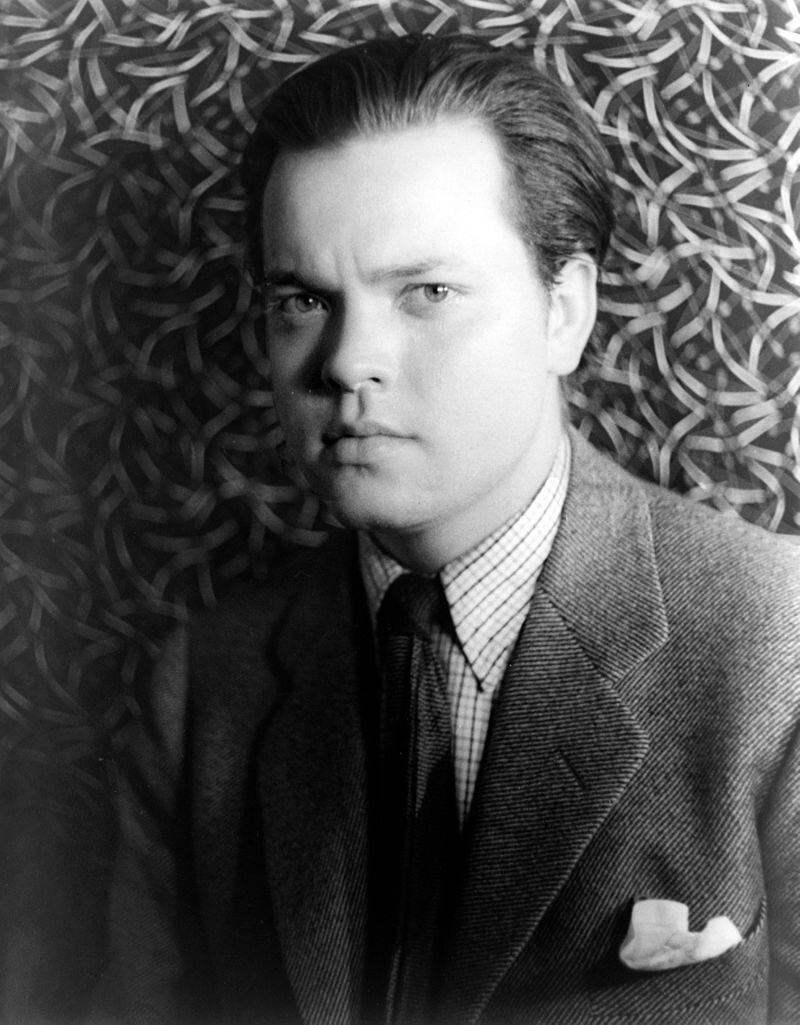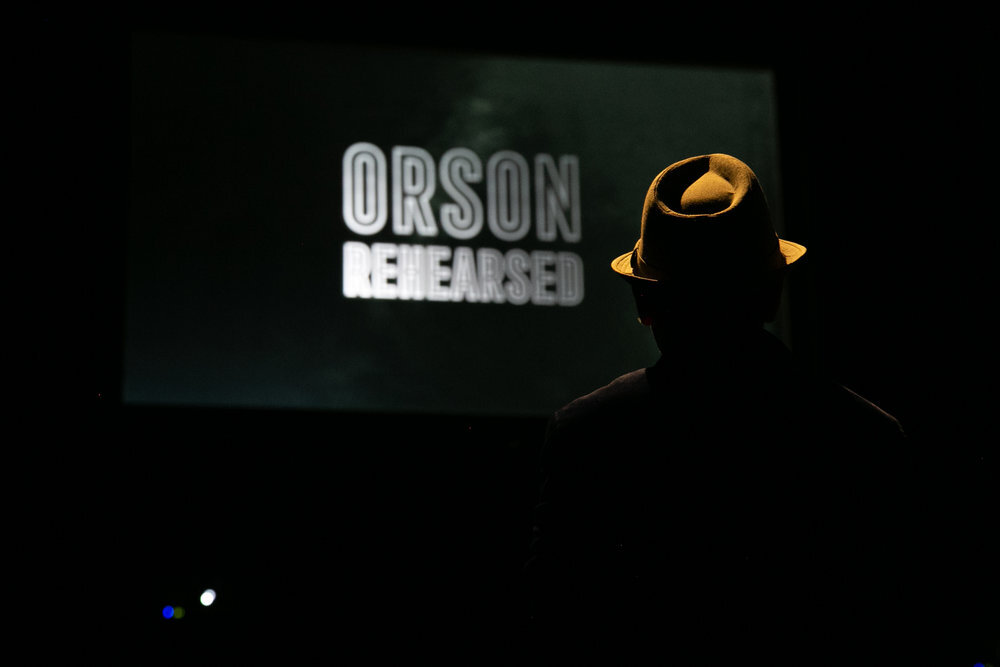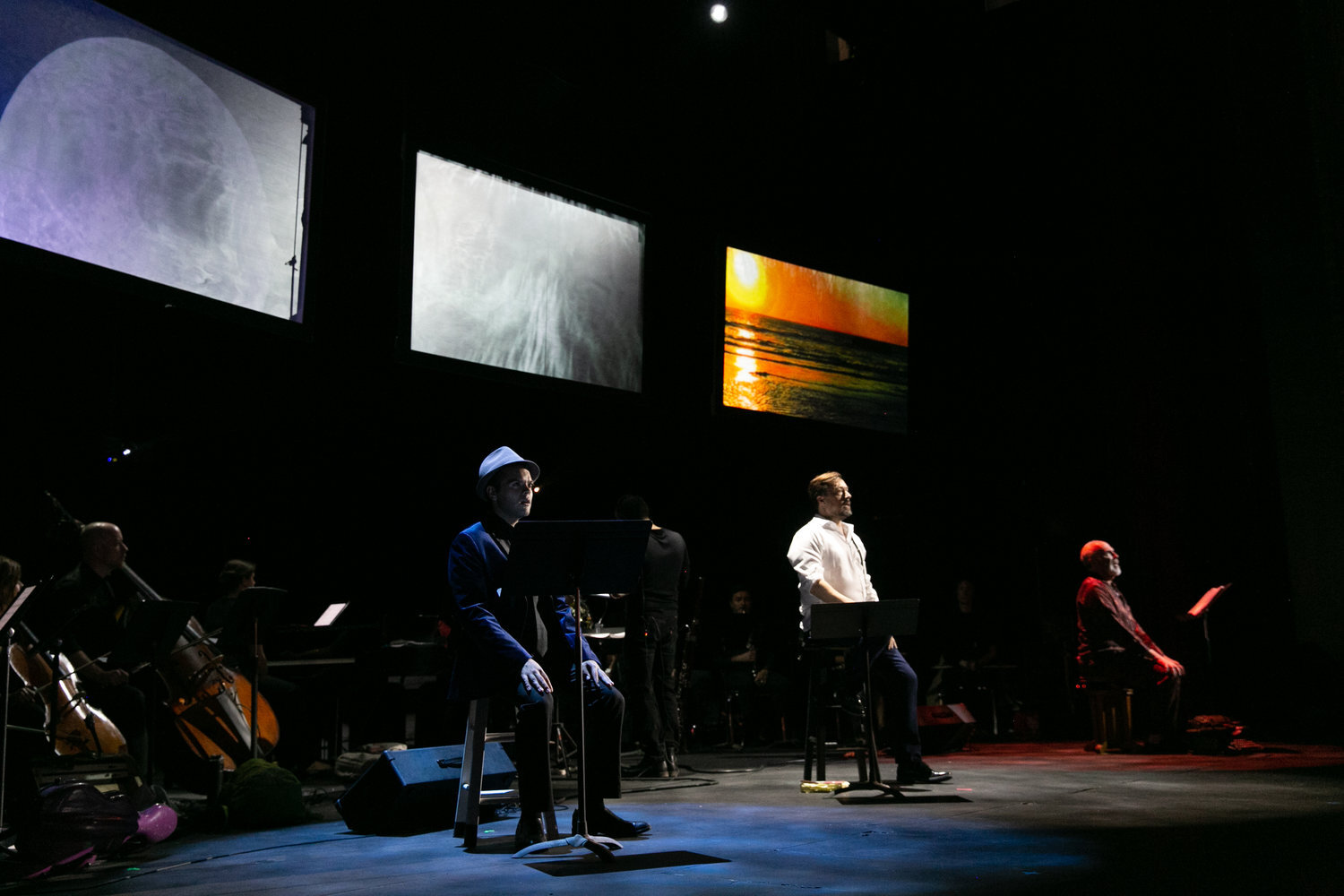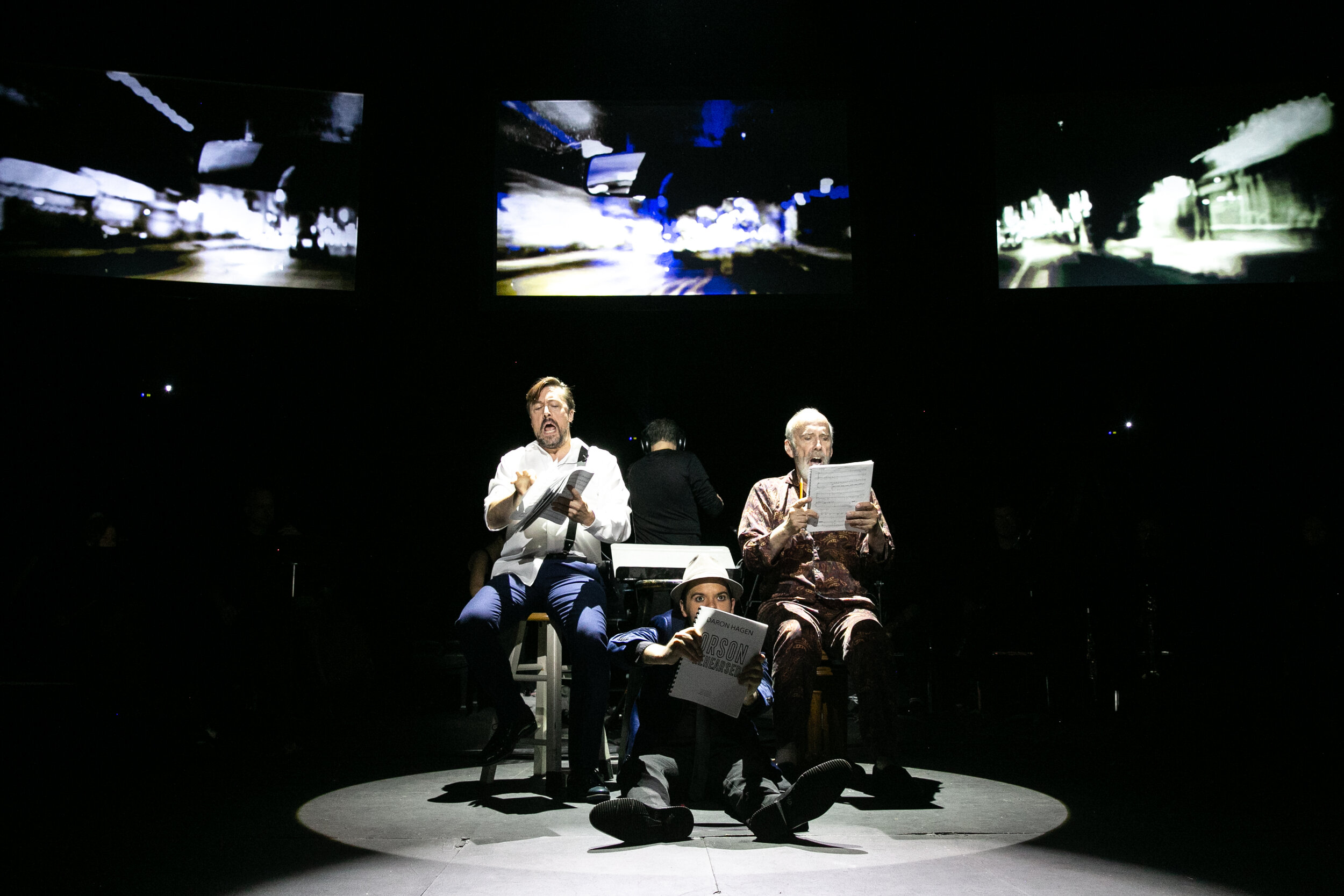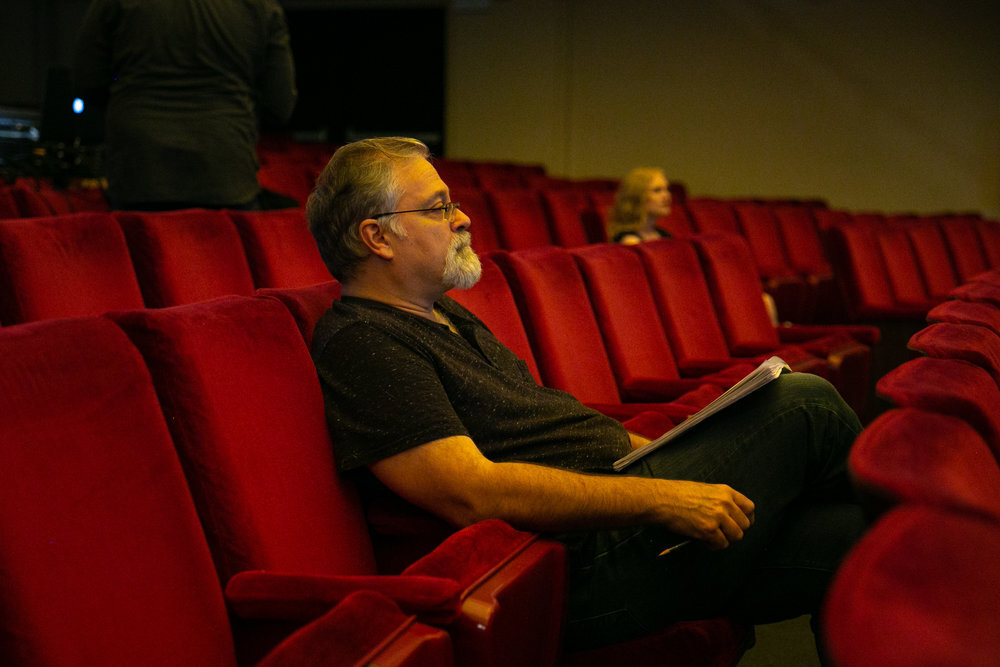Daron Hagen: Orson Rehearsed
Daron Hagen. (Photo credit: Karen Pearson)
Daron Hagen is a composer, author, performer, and director. Commissioned by the New York Philharmonic, Seattle Opera, and The National Symphony Orchestra, among many others, his catalogue includes eleven operas, five symphonies, twelve concertos, dozens of instrumental works, film scores, and over 300 art songs and cycles.
His operafilm Orson Rehearsed, released on Naxos Records in March 2021, is presently garnering laurels at film festivals worldwide. For his filmmaking debut, Hagen wrote the libretto/screenplay and score (both acoustic and electro-acoustic), stage (and film) directed, shot the film for the movies-within-the-film and staged opera, edited the film, and mixed the soundtrack.
A Lifetime Member of the Corporation of Yaddo, Hagen has served as president of the Lotte Lehmann Foundation, and as artistic director and head of faculty of the Seasons Music Festival Academy in Washington. Twice a Rockefeller Foundation Fellow at Bellagio, he has received the Guggenheim Fellowship, Kennedy Center Friedheim Award, ASCAP Foundation Rudolf Nissim Prize, Barlow Endowment Prize, and Columbia University Bearns Prize; he is also the recipient of the American Academy of Arts and Letters’ Academy Award for “the artist who has achieved his singular voice.” Currently a member of the artist faculty of the Chicago College of the Performing Arts and the Wintergreen Music Festival, he has taught at Bard College, the Curtis Institute of Music, and the Princeton Atelier.
To celebrate the release of ‘Orson Rehearsed’, we had the opportunity to interview Daron about the project!
Orson Welles. (Library of Congress)
What inspired ‘Orson Rehearsed’?
About five years ago, I was in the final stages of finishing a literary memoir called Duet With the Past which had required me to summon the courage to publish an unflinching, often painful appraisal of my past. I was compelled to accept, once I had finished the book, that I was a professionally-accomplished polymath, but—unlike someone like Orson Welles, for example—that I hadn’t possessed the self-awareness (or faith in myself) to really run with it. Pushing sixty and diagnosed with degenerative heart disease, I realized that I had better get cracking before it was too late.
I dreamt up Orson Rehearsed, a piece in which a polymath comes to terms with his past during the last moment of his life. Because I had the necessary skills, I could serve as composer, librettist, screenwriter, director, designer, filmmaker, audio and film editor, mastering engineer, and chief bottle washer. In short, because I was able to exercise complete artistic control as an auteur composer, I was able to carve out a highly personal, stubbornly new blending-together of opera, musical theater, and cinema.
Orson Rehearsed’ has an incredibly unique structure. Could you talk a bit about how you created this variable, multi-format production, and how it relates to Orson Welles?
A master magician, Welles was a devotee of deception in the service of sharing truths. Orson Rehearsed is really a sort of “memory palace” consisting of 52 moments (like dramatic “beats,” or cards in a deck) chosen from his life. Only 15 of them made it into the iteration of the magic trick / performance that occurred at the Studebaker Theater in Chicago in September 2018. The Naxos recording is the soundtrack for the operafilm for which my Chicago staging served (like Bergman’s staging of Magic Flute) as raw material into which other layers of footage were interwoven. Every new staging of Orson Rehearsed can be cast in any way and use any of the 52 “beats” in the memory palace. It will never be staged the same way twice. I think Welles would have loved the ephemeral, intuitive, stream of consciousness nature of the document—hence the title, which is of course a nod to Welles’ own play, Moby Dick Rehearsed.
Putting together a production like this would be quite complex – what was it like working with Fifth House Ensemble to make it happen?
Roger Zahab, the conductor, is really the hero of the Chicago production. With only a click track and the full score, he managed to keep the acoustic players of the Fifth House Ensemble together with 48 short onstage films, an extensive electro-acoustic track playing through speakers, and three opera singers. Incredible. His extraordinary work was made possible by Atlas Arts Audio, a team of gifted young engineers who wrangled tech in real time for the live audience while also getting me the shots and audio I needed to then spend the next two years editing and mixing. And all the cues were called by one of my composition students, Shelby Blalock, in her first outing as a stage manager! I am so proud of what everyone achieved together.
How did you first decide to pursue a career in music, and what have been some of your personal highlights along the way?
As a seven-year-old, I was taken, along with the rest of my class, to hear the Milwaukee Symphony Orchestra, led by Kenneth Schermerhorn, perform, among other things, the Largo from Antonín Dvořák’s New World Symphony. Stephen Colburn played, I felt “tugged out of myself,” and knew then and there that, no matter what, I intended to be music. As for pursuing a career, I don’t think that it dawned on me until I first stepped into the Curtis Institute in 1981 that a “career” was even a possibility. Now I understand that “careers” are simply what happened; it is the people that were important. Every single memory I treasure most about being a composer has involved other people—standing at the rail at the premiere of Shining Brow with stage director Stephen Wadsworth and realizing at the same moment that it was going to be a hit; or bursting into tears when I first heard Nathan Gunn and Kate Lindsey sing Amelia; or, for that matter, accompanying a hundred singers over the years and protecting them from the piano as they put it on the line….
Early in your musical career, you studied with some of the biggest names in classical music, including Ned Rorem, David Diamond, Lukas Foss, and Leonard Bernstein. How did these mentors and other early teachers influence your compositional style and overall approach to music?
To me, the freest spirit of the four was Lukas. His influence remains most with me to this day—not musically, but in terms of the ever-youthful, spiritual joy, the determination not to judge others, and the intellectual curiosity he seemed always to emanate. Ned was the hard-charging professional, the social arbiter, public intellectual and brutal critic. To me, David was the tormented perfectionist, demanding employer, and self-styled Byronic hero. Bernstein was everything to the max, burning like a comet. I was old enough to hold my own when I knew them, but young enough to still be thought of as a kid, so I learned more than I can remember from them. They set the bar very high by being excellent at what they did at a time when excellence was the starting point. Style is irrelevant in the end—it’s like saying that someone was “some kind of man.” What does that even mean??

